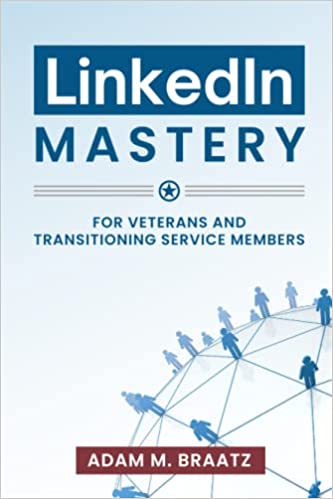"Why did you choose this job?" is an incredibly common interview question that you must be prepared to answer.
This guide will teach you everything you need to know, so you can make a great impression and land the job you want.
Why This Question Gets Asked
There are several reasons why this question comes up during interviews. The first is out of sheer curiosity! It doesn't matter what type of job you're trying to land. Hiring managers are often eager to learn more about what led you to this moment.
They want more insight into why you chose this particular field and this job opportunity. This information can be useful internally, helping hiring teams in the future. It can also help hiring managers see if you'll fit the company and its culture well.
Beyond that, interviewers ask "Why did you choose this job? to gauge your genuine interest in the position and understand your motivations. Hiring new employees isn't an easy or cheap endeavor. Companies put significant resources into the process, and it's often a time-intensive journey to find the right person to fill every role.
Hiring managers want to ensure that what the company puts into this search is a smart investment in the organization's long-term success. Employers don't want people who are clearly just there for the money. Nor do they want individuals who are only mildly interested in the role
They want someone truly interested in the role because that typically translates to high productivity and good employee retention. If you're not invested in the job, there's a higher risk that you'll head to greener pastures when the going gets tough. That's not what companies want or need, so interviewers ask this question to learn more about your intrinsic motivations outside of a paycheck.
Your answer will let help hiring managers understand if you'll be happy in the role and do your best to succeed.
How to Answer "Why Did You Choose This Job?"
Interview questions like this may seem straightforward. But your answer holds more weight than most realize, unveiling critical information about your potential in the job. The quality of your response matters.
Here are a few tips to develop a great answer that leaves a lasting impression.
Learn About the Position and Company
The first thing you should do is research the company and the job. This step is paramount for any job you apply to. You can't respond thoughtfully if you know little about what you're getting into! Job descriptions alone aren't enough to give you the information you need.
Perform in-depth research about the company, its history and what it does. Learn about its position within the industry and its impact. You can turn to the company's official website and social media pages.
If possible, connect with current employees to learn as much as possible. Then, do the same about the position itself. Research the role, how it affects the company's bottom line, what a typical day looks like, etc.
Research is useful for many reasons. First, it helps you learn more about the company you're applying to and the job itself. Take what you've learned and consider if this job truly interests you.
Secondly, you can use what you learned during your research to show interviewers that you're familiar with the company. That alone can be impressive because it shows you're invested in the organization and the opportunity.
Furthermore, that research can help you develop a solid answer. Use what you learned about the company's goals and values. Connect them to your own, and you can provide several compelling reasons why you chose this opportunity to pursue.
Make it Clear That You're Qualified
While many assume that answering "Why did you choose this job?" focuses solely on motivations and values, you can also use it to show off your qualifications. It's important to take every opportunity to reiterate that you're wholly qualified to fill the role.
You can do this in many ways, but one of the best is to reflect on your past experiences that got you to this point. For example, say that you have a degree in this field, and the position is the next natural step in your career. Approach the answer by bringing up your past education and work experience.
You could mention that you have a degree in this field, explaining why you chose to pursue it and are passionate about it. Segway into how your career has evolved, and you can drop tidbits of information about the relevant experience that makes you qualified for the job.
Get creative and be proud of your accomplishments! Don't go overboard with your qualifications, but don't shy away from mentioning them, either. They could help you get a job offer.
Connect the Job With Your Goals
Another great way to answer this question is to connect it to your larger career goals. This approach can be tricky, so plan what you want to say well before your interview.
The last thing you want to do is give the impression that this position is merely a stepping stone. That's a huge red flag because it makes hiring managers worry that you'll leave the first opportunity you have. Choose your words wisely!
Focus instead on how this position will help you reach your long-term goals. For example, you can mention how the experiences and skills you'll gain working for the company will be integral to becoming a high-level executive in your field.
Remember to reiterate how passionate you are about the job and the company. Consider expressing your excitement about working at this company and avoid making it sound like the job is transitory. Emphasize precisely how this role will help you learn and grow.
Bringing up your long-term goals is a fantastic way to show that you're in it for the long hall. It proves your motivations go beyond a paycheck and reassures hiring managers that you'll work hard to succeed.
Show Your Enthusiasm
Our last tip is an easy one: Be enthusiastic!
Many people assume that job interviews need to be stuffy, formal events. While you must maintain a high degree of professionalism at all times, that doesn't mean you can't show excitement about the opportunity.
Enthusiasm can take you a long way. When an interviewer clearly sees that you're passionate and excited about the job, there's no question that you'll do your best to succeed. It can even show that you'll be a joy to work with (which makes all the difference).
Reiterate your interest, and don't be afraid to bring up what excites you most about the job. For example, maybe there are facets of the job that you truly love. Talk about them! Let interviewers know why you're eager to get started; That enthusiasm can push you to the top of the candidate list.
Sample Answers
Your response should be unique to your experiences and motivations. But we have a few examples to inspire and guide you in the right direction.
Sample 1
Our first sample answer comes from a candidate who identifies with the company's culture. This response works well because it's a low-key form of flattery. More importantly, it focuses on the company culture.
The candidate's response reassures the interviewer that they will do everything they can to succeed and make the most out of their time with the company.
"One of the most significant things that drew me to this job is your company's reputation. Not only is your organization well-known throughout the United States, but your presence locally is something I've always admired. Your company's participation and sponsorship of the annual 5K raise that raises awareness for cancer research is amazing.
As someone with a parent who passed from cancer, it's a cause that's important to me. Working for a company with values like that would be fantastic. Pair that with your organization's long history of success in this industry, and it felt like a match made in heaven for me."
Sample 2
Our second example leans more on real-world work experience and qualifications. The candidate seeks a leadership position in customer service and uses their response to highlight their education and work history.
"I chose to pursue this job because of my success and passion for helping others while making a real difference. I firmly believe that a company's success hinges on the experience it delivers to customers. I've been working in customer service since I was a teenager.
My first job was in customer service, and my experience there led me to pursue a degree in business administration. That's helped me deliver even better customer service, and I've played a big part in reshaping customer relationship management in my previous roles.
Your organization is well-known for delivering top-notch customer service, and I'm eager to become a part of that while doing what I can to elevate things even more."
Sample 3
Our final example is from a candidate who's changing careers. If you're in this boat, answering a question like this can be tricky. The key is to focus on your motivations and highlight past experiences relevant to this new job.
The candidate in this example does a fine job of showing what motivates them and proving they'll be an asset to the company.
"For several years, I've worked as a data analyst. As you can likely see from my resume, this is my first time pursuing marketing. I decided to make the career change after realizing that my passion for data analysis revolved around how teams used that data to connect with customers.
The scientific side of data analysis was less interesting to me than the application of my work. I decided to get more involved with my previous company's marketing efforts and realized I had a knack for it. My ability to interpret and apply data gives me a unique edge over other marketing professionals.
I've spent the last year filling skill gaps in marketing, and I believe I'm ready to transition into marketing full-time. This opportunity is a great match for me because of your company's data-driven approach to marketing. I'm eager to apply my skills as a data analyst while diving head-first into the marketing world!"
Conclusion
Talking about why you chose a particular job doesn't have to be complicated. In fact, the recommendations above are actually rather simple!
Do some research, spend some time preparing your answer, and you'll do just fine.



